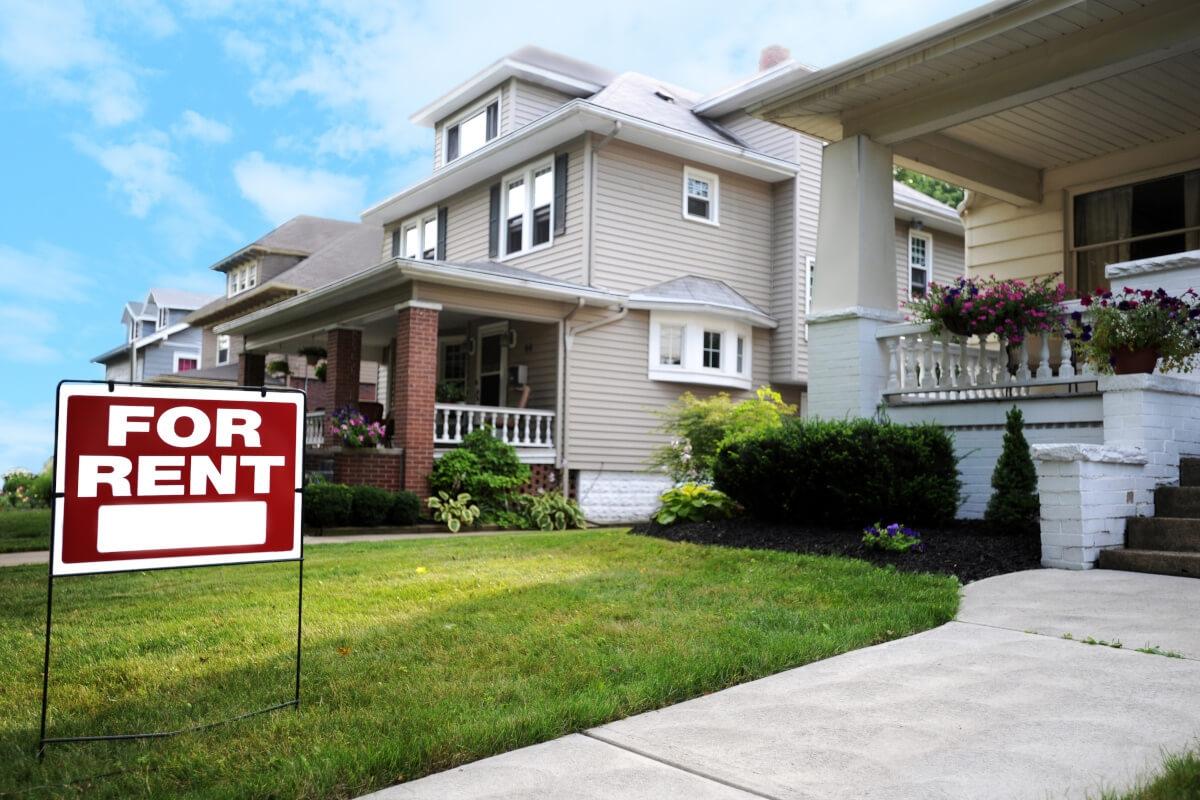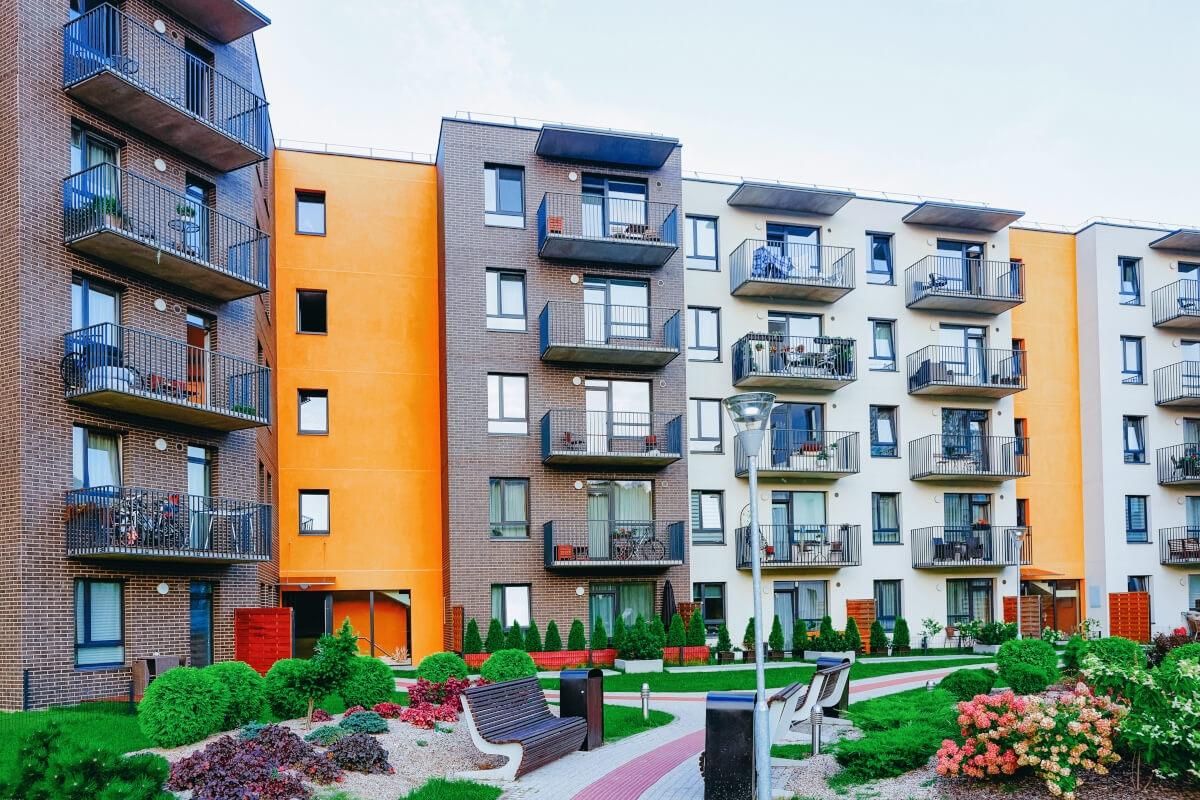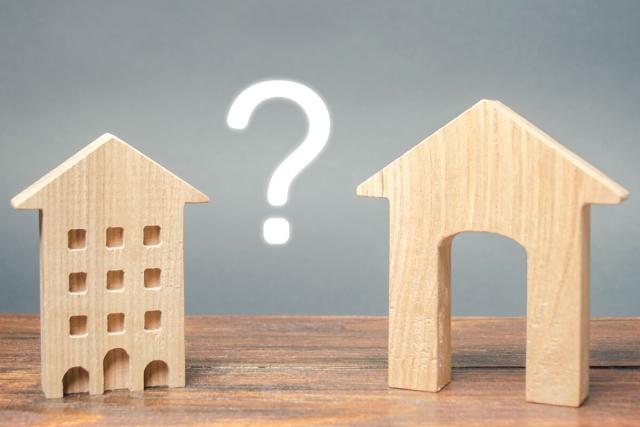If you’re on the hunt for a new home, it’s important to weigh all your options. While many consider apartments the default option, single-family houses are also a great option for renters. But how do you know which one is right for you?
Whether you rent a house or an apartment depends on your unique circumstances. What’s your budget? How big is your household? Are you looking for a short-term lease or to stay the long haul? In this guide, we’ll help answer all these questions to determine which rental type fits you best.
Here’s a preview of what we’ll cover:
- Understanding your rental needs
- Pros and cons of renting a house
- Pros and cons of renting an apartment
Understanding Your Rental Needs
To know whether an apartment or a house suits you best, you first must evaluate your needs. Are you a pet owner who needs a large backyard? What about kids? Is privacy or noise a concern for you? Answering questions like these should steer you toward one property type over the other. You should also make sure to weigh the following factors:
Budget restrictions
First and foremost, let’s talk about budget. Knowing your financial limits is the first step in choosing between a house or an apartment. There’s no clear answer to whether one or the other is more expensive. However, you can usually bet on houses being a bit pricier. This is largely due to increased utility costs, as well the higher value of more square footage and privacy.
Space and flexibility
Space needs often depend on the size of your household. If you’re married with a couple of kids, you may not want to squeeze everyone into an apartment. On the other hand, if it’s just you and a roommate, you probably won’t need all the space that comes with a single-family house. Just remember that neither option is one-size-fits-all, and your household needs and accommodations might look different than the next.
Lifestyle and convenience
The property type you choose can have a huge impact on your lifestyle. For instance, if you enjoy fitness and community, you might do best in an apartment with an on-site gym and common spaces. However, if you prefer quiet and seclusion, a stand-alone house in the suburbs may be more suitable. Before making any commitments, evaluate your personal needs and preferences to ensure your next home aligns with your lifestyle.
Pros and Cons of Renting a House

Renting a house is a great option for those seeking more space, privacy, and green space. However, they also have some pitfalls compared to apartment buildings. Let’s take a look at some of the pros and cons of renting a house to help you make an informed decision.
Advantages of renting a house
- More space and privacy: Living in a house typically offers more room to spread out compared to apartments or condos. Whether it’s an extra bedroom, a spacious living area, or a dedicated workspace, homes provide the privacy and comfort many people desire.
- Outdoor areas for pets: Houses often come with yards or outdoor spaces, which are perfect for pets to play and explore. This makes it easier for pet owners to provide their furry friends with exercise and fresh air without frequent trips up and down the elevator to the nearest green space.
- Rent-to-own potential: Some houses offer rent-to-own options, allowing renters to eventually become homeowners. This can be a great opportunity to build equity while living in the home and avoiding the immediate need for a large down payment.
Disadvantages of renting a house
- Higher utility costs: Living in a larger space often comes with higher utility bills, including electricity, water, and heating. These increased expenses can quickly add up and may require budgeting adjustments to manage effectively.
- Increased maintenance responsibilities: A bigger home means more areas to clean, repair, and maintain. Though your landlord will be responsible for arranging major repairs, you may be in charge of lawn care or minor appliance fixes. This responsibility can be stressful and time-consuming for some, deterring them from the rental home option.
- Potentially longer commutes: You’ll typically find single-family properties in suburban neighborhoods with less urban access. For someone who works in an office, this might mean longer travel times, higher transportation costs, and less free time during the day.
Pros and Cons of Renting an Apartment

Just like houses, apartments also have their equal share of pros and cons. However, what they lack in privacy or space, they make up for in convenience, community, and oftentimes, price. Here’s a full breakdown of the advantages and disadvantages of renting an apartment.
Advantages of renting an apartment
- Access to amenities: Amenities are one of the biggest perks of renting an apartment. Whether it be an on-site gym, pet grooming station, or rooftop lounge, apartment amenities can make your life more convenient and enjoyable. Plus, they save you the money and time needed for additional memberships or travel.
- On-site maintenance services: Apartment communities usually have on-site maintenance services. Rather than waiting on a landlord to contract help, apartment goers can enjoy prompt and stress-free maintenance services with minimal to no hassle.
- More socialization: Living in an apartment allows individuals to be part of a larger community. With shared spaces and events, it's easier to get to know your neighbors and make new friends.
Disadvantages of renting an apartment
- Limited privacy: Lack of privacy is one of the biggest drawbacks to apartment living. With shared walls and common areas, it can be challenging to find a quiet space or have personal moments without interruptions.
- Potential noise disturbances: Living in such close quarters means potential for noise. Whether it’s a late-night party happening upstairs or a barking dog next door, noise disturbances are nearly impossible to avoid when living in an apartment.
- Community restrictions: You have to play by the rules when living in an apartment, which may sometimes mean compromising on what you want. Many apartment communities have restrictions on pets, quiet hours, and even decorations. This can be frustrating for those who want more freedom to make their space their own.
Rent a House or Apartment with Apartments.com

Choosing between a house and an apartment can be difficult. On one hand, you might enjoy the community and convenience of an apartment. On the other hand, you may also value the privacy and space of a single-family home.
The bottom line is that both options offer their equal share of benefits and drawbacks. When deciding which fits you best, consider costs, maintenance, privacy, amenities --- everything that could possibly affect your living experience.
If you need more insight on either of these rental types, visit the blog at Apartments.com for valuable tips and guides on all things renting. Then, when you’re ready to start searching, search listings with our user-friendly listing platform to find the apartment or house of your dreams.
FAQs
Is it cheaper to rent a house or an apartment?
Apartments are generally cheaper to rent than houses because they have less space and fewer maintenance costs. However, rental prices can vary depending on location, size, and amenities offered.
Do houses require more maintenance than apartments?
Houses usually require more maintenance since they have larger spaces, yards, and additional structures like garages. In apartments, maintenance is often handled by property management, making it less of a burden for tenants.
Can I have pets in both houses and apartments?
It depends on the landlord's rules. Houses often provide more flexibility and space for pets, while apartments may have stricter pet policies or extra fees.
Which option offers more privacy?
Houses typically offer more privacy since they don’t share walls with neighbors and often have private yards. Apartments usually have shared spaces and thinner walls, which can reduce privacy.






